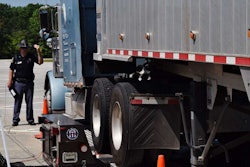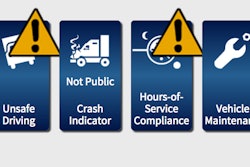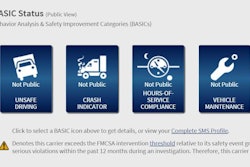
The U.S. DOT is honing the techniques it uses to perform on-site compliance reviews of trucking companies by expanding the number of interviews performed with carrier employees and checking carriers’ social media accounts.
The DOT’s Federal Motor Carrier Safety Administration has in recent years found an appreciation for “Enhanced Investigative Techniques,” says compliance consultant Jeff Davis of Fleet Safety Services. “[FMCSA is] changing the way they’re doing audits throughout the U.S.,” Davis told attendees of November’s annual National Association of Small Trucking Companies meeting.
In the past, when FMCSA came calling to do a full on-site compliance review at company headquarters, contact with company representatives might be limited to safety directors and a handful of other administrative personnel, said Davis.
He used the example of the requirement for carriers to have for each of its trucks an annual inspection. “In the past,” he said, “what you’d been able to do was, as long as you had that piece of paper” showing you did the inspection, “the auditor would check the box and move on. What they’re doing now is looking past the documents and looking into the culture of the company. They’re holding sequestered one-on-one interviews with accounting, with sales, with drivers, and checking social media.”
In the quarterly Guardian publication from the Commercial Vehicle Safety Alliance (second quarter 2015), FMCSA training center director Ron Crampton outlined the intention to make training in EIT available to state auditing personnel, to add to the already-trained federal force. “The training is taught by seasoned investigators and uses case studies to help students apply the techniques,” Crampton wrote on p. 12 of the publication. “Since implementing the EIT program at FMCSA, the agency has significantly increased the enforcement rate for investigations and has issued numerous out-of-service orders.”
Davis says carriers should seek the “Part C” of the audit report from any compliance reviews conducted by FMCSA or state officials. Obtaining the Part C may require a Freedom of Information Act request, Davis says, but the information provides “invaluable learning” for carriers, he said. Carriers do receive Parts A and B, which detail general company information and violations found, respectively.
“They do not release [Part C] to you,” Davis said, and what it shows essentially are the auditor’s notes, the method of operation of how you went through your audit. “It will list who they talked to and what their responses were, down to the nth degree” of detail.”











